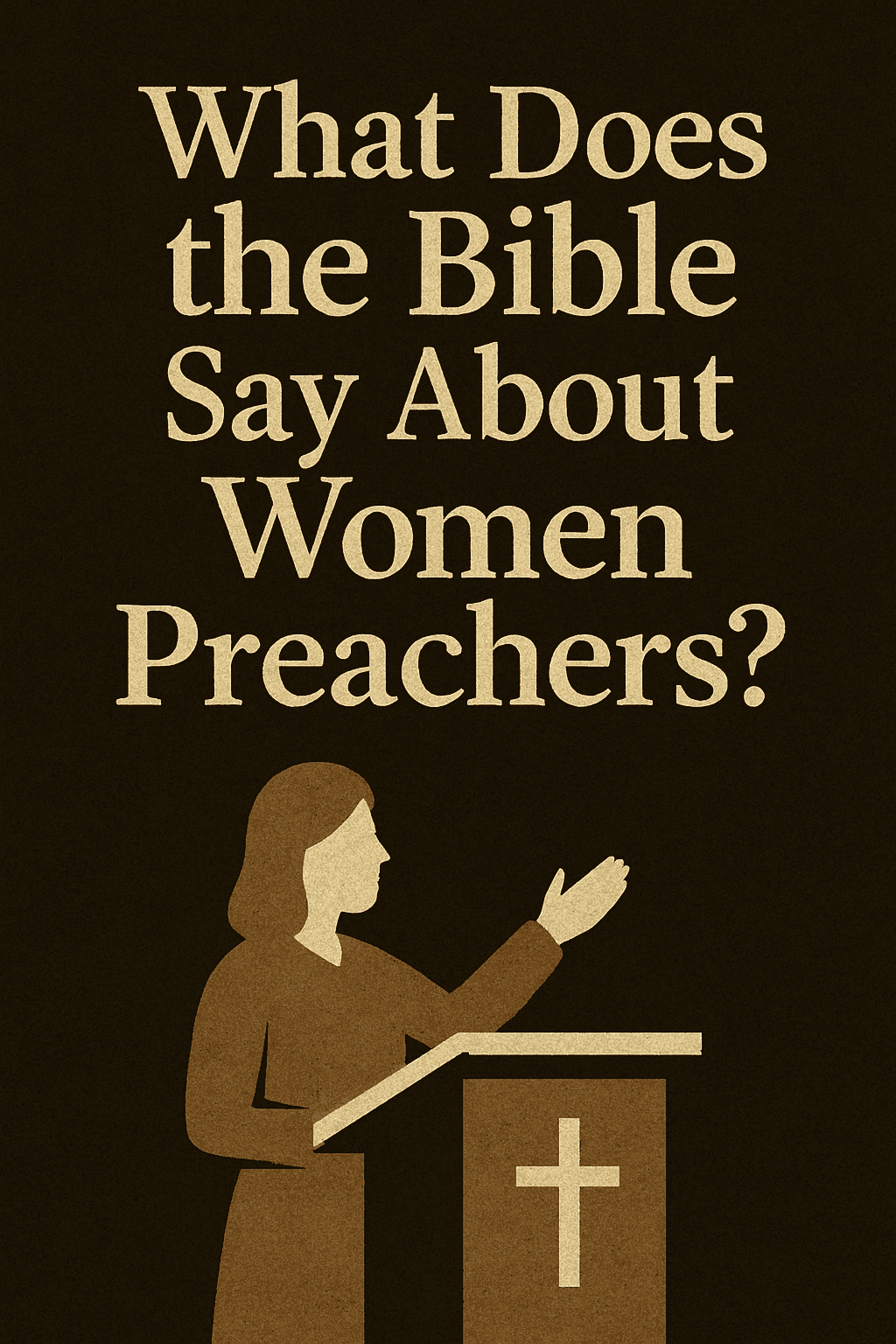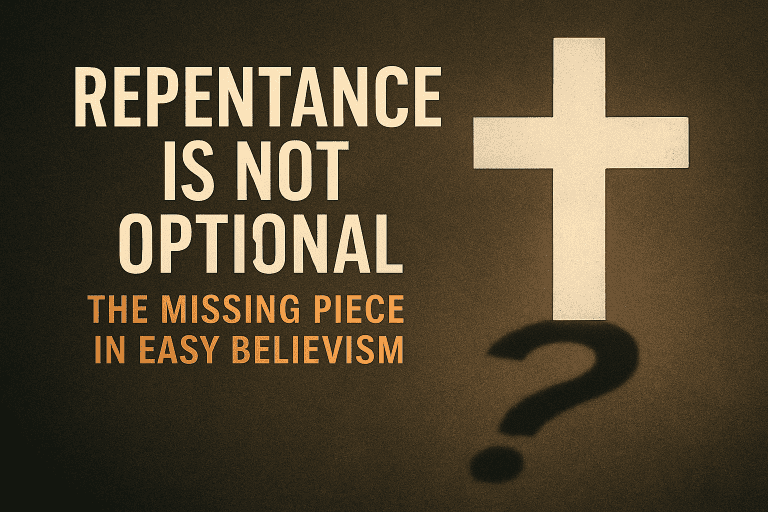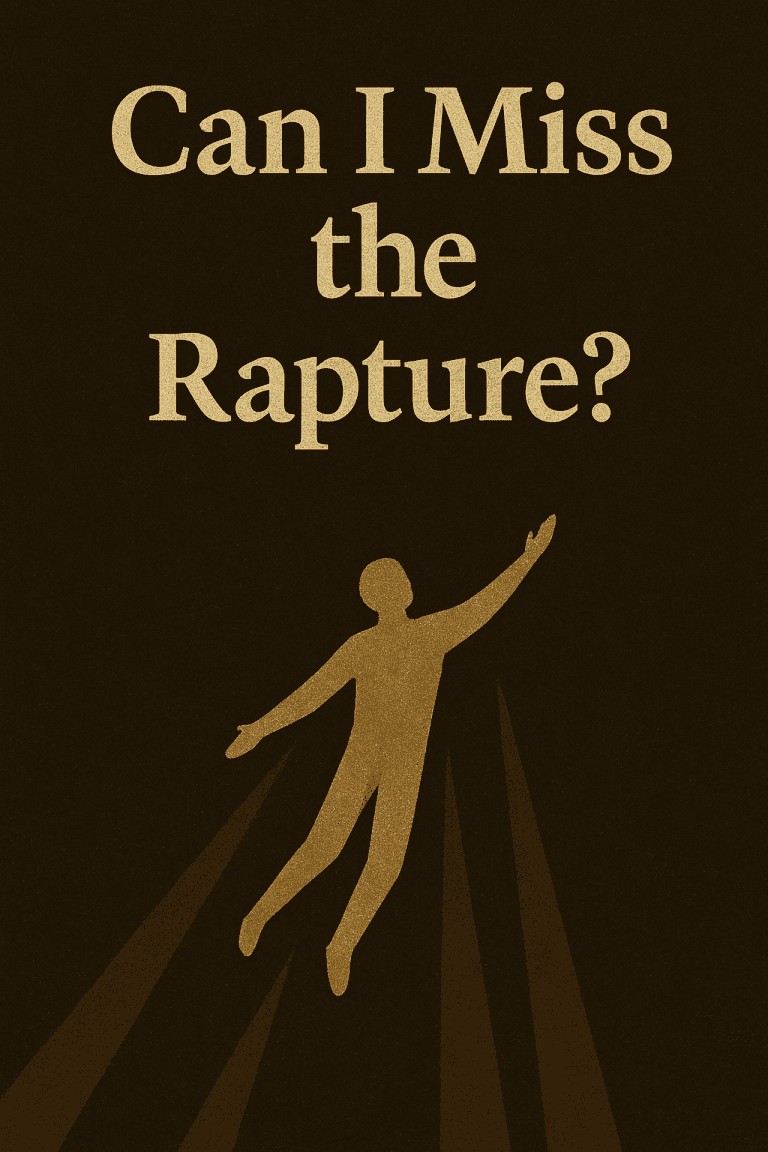What Does the Bible Say About Women Preachers?

The Question No One Wants to Ask
What does the Bible say about women preachers? This is a touchy subject. People don’t like talking about it because it goes against the grain of modern culture. The world says women can do anything men can do—and in many cases, that’s true. Women are capable, intelligent, and influential. But here’s the real question:
Does capability determine calling?
Just because someone can do something, does that mean God has called them to do it? Or has He established an order for the home and the church that goes beyond personal ability?
That’s where the real issue lies. This isn’t about whether women can preach. It’s about whether God has ordained them to preach. And to answer that, we can’t go by personal feelings, cultural movements, or what’s popular. We have to go straight to the Bible.
Let’s start where God starts: Genesis.
Creation Order: God’s Design Was Intentional
If you don’t get Genesis right, you won’t get anything else right. It all begins there.
In Genesis 2, we see God’s divine order for men and women:
- God created Adam first. Not by accident, but on purpose (Genesis 2:7).
- God created Eve as a helper (ezer), not as a co-leader (Genesis 2:18).
- God gave Adam authority over creation and over Eve. He was the one who named her (Genesis 2:23), which in biblical terms indicates leadership.
Now, before you roll your eyes at the word helper, let’s be clear: being a helper is not a position of weakness. The same word is used to describe God Himself (Psalm 33:20). It’s a position of strength, support, and purpose—but it is not leadership.
When the Fall happened in Genesis 3, what was the problem? Eve took the lead. She made the decision. Adam, instead of stepping up, stood by passively. That role reversal—where the woman led and the man followed—brought sin into the world.
And what was part of Eve’s judgment?
“Your desire shall be for your husband, and he shall rule over you.” (Genesis 3:16)
That’s not a sweet verse about marriage. That’s a statement of conflict. Eve’s desire would be to rule over Adam, and Adam would either abdicate his role (as he did in the Garden) or rule harshly instead of leading with love.
This struggle—the tension between male leadership and female desire for control—has continued ever since.
And that’s exactly what we see today when it comes to women preachers. It’s not about ability. It’s about God’s order.
The Pattern of Male Leadership in Scripture
If God wanted women to preach and lead in the church, we would expect to see plenty of examples in the Bible, right? But here’s what we actually see:
- Every priest in the Old Testament was a man. (Exodus 28:1)
- Every king of Israel was a man. (With one exception—Athaliah—who was wicked and an illegitimate ruler.)
- Every apostle was a man. (Matthew 10:1-4)
- Every elder and overseer in the early church was a man. (1 Timothy 3:1-7, Titus 1:5-9)
Women had important roles—they were prophets (Miriam, Deborah, Huldah), deacons (Phoebe), and co-laborers in the Gospel. But not one of them was ever called to preach or have authority over men.
The pattern is crystal clear. God always places men in positions of spiritual authority.
Direct Commands: Women Are Not to Preach
If Genesis wasn’t enough, and the pattern of male leadership throughout Scripture wasn’t enough, God makes it abundantly clear in the New Testament.
1 Timothy 2:11-15 – No Authority Over Men
“Let a woman learn in silence with all submission. And I do not permit a woman to teach or to have authority over a man, but to be in silence. For Adam was formed first, then Eve. And Adam was not deceived, but the woman being deceived, fell into transgression.”
Let’s break this down:
- Paul’s command is not cultural—he ties it directly to creation order (Adam first, then Eve).
- Women are told to learn in silence with submission—not because they’re less intelligent, but because they are not to be in authority over men.(There may be some other views on this text concerning the exercising of spiritual gifts – specifically tongues.)
- The Fall is the reason for this command. Eve was deceived. Paul says that matters.

1 Corinthians 14:34-35 – Silence in the Church
“Let your women keep silent in the churches, for they are not permitted to speak; but they are to be submissive, as the law also says.”
Paul reinforces the same principle—women are not to have spiritual authority over men in the church.
Again, this is not a one-time cultural restriction. This is God’s established order.
Objections: But What About…?
Some people bring up women like Deborah, Priscilla, Phoebe, or Joel’s prophecy about daughters prophesying. But none of these examples support the idea of women preaching in the church.
- Deborah was a judge, not a preacher. She sat under a tree, not in the city gates like male elders. She also rebuked Barak for not leading like he should (Judges 4:8-9).
- Priscilla taught Apollos alongside her husband, not as a preacher. There’s no evidence she ever taught publicly or had authority over men (Acts 18:26).
- Phoebe was a deacon, not a preacher. Deacons serve—they don’t lead or teach doctrine (Romans 16:1-2).
- Joel’s prophecy (Acts 2:17-18) was about prophesying, not preaching. The Holy Spirit is poured out on all believers, but that doesn’t erase God’s distinct roles for men and women.
What Does the Bible Say About Women Preachers? Do We Follow the Bible or the Culture?
This issue really comes down to one question:

Do we trust God’s design, or do we follow the culture?
The world says anyone can preach. The Bible says God calls only men to authoritative teaching and preaching.
And the truth is, when we step outside of God’s divine order, the church suffers. Male leadership in the church is not about oppressing women—it’s about obeying God. It’s about recognizing that His way is best, even if the world disagrees.
The church belongs to Jesus Christ, not to us. We don’t get to redefine how it operates. He already gave us the blueprint.
So the real question is: Will we obey it?
Let’s Seek God’s Order Together
If you have questions about biblical leadership or want to explore God’s design for men and women, reach out. Let’s open the Bible and talk—not based on opinions, but on what God has actually said.
Want to know more about the biblical doctrine of election and predestination? Read my free pamphlet Chosen by Grace.
Walt Roderick is a Christian writer who cares more about biblical clarity than online applause. He writes to strengthen believers and confront spiritual drift.






